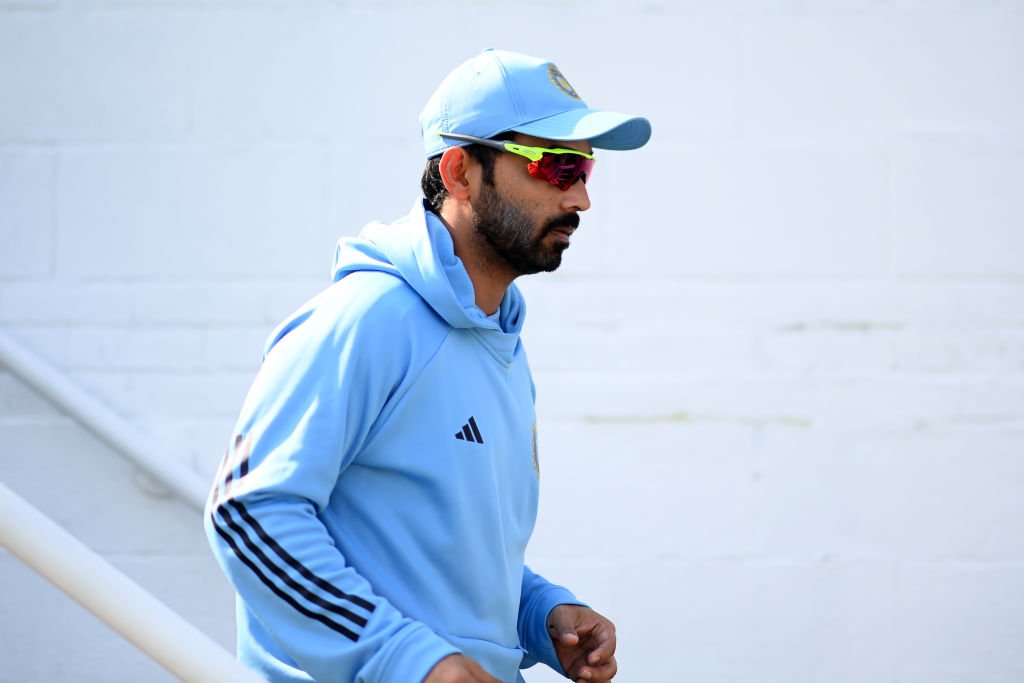
Ajinkya Rahane’s recent decision to send teammate Yashasvi Jaiswal off the field during the Duleep Trophy final has sparked conversations about discipline and leadership in cricket. This incident not only highlights Rahane’s instinctive response to a breach of sportsmanship but also serves as an example for young cricketers in navigating the fine line between competitive spirit and maintaining respect for the game.
The Incident: What Happened?
The Duleep Trophy final saw West Zone pitted against South Zone, and tensions flared during the match when Jaiswal engaged in a series of verbal exchanges with South Zone batter Ravi Teja. The sledging escalated to the point where Teja and the on-field umpires lodged complaints about Jaiswal’s conduct. Despite having been warned earlier, Jaiswal continued to push the boundaries, prompting Rahane to take decisive action.
Rahane, known for his calm demeanor and leadership qualities, decided that enough was enough. He instructed Jaiswal to leave the field, believing that maintaining the integrity of the game was paramount. This decision was not made lightly; Rahane emphasized the importance of respect for opponents, umpires, and the match officials. He later stated that he took this call “instinctively,” underscoring the spontaneity required in such situations where discipline is concerned.
Rahane’s Leadership Philosophy
Ajinkya Rahane has long been regarded as a player with strong leadership qualities, often serving as a mentor to younger players. His approach to leadership is characterized by a focus on integrity and respect, values that he believes are essential for the sport. Rahane’s decision to remove Jaiswal from the field speaks volumes about his commitment to these principles. He has often emphasized the need for players to conduct themselves with dignity, especially in high-pressure situations like finals.
This incident also highlights Rahane’s understanding of the responsibilities that come with captaincy. In cricket, where team dynamics can greatly affect performance, a captain’s actions set the tone for the entire squad. By prioritizing discipline over individual brilliance, Rahane showcased the essence of true leadership.
The Aftermath and Impact
Following his removal from the field, Jaiswal returned after a brief absence and continued to play a pivotal role in West Zone’s eventual victory. His outstanding double century contributed significantly to the team’s success, allowing him to also be named Player of the Match. This outcome illustrates a crucial lesson: that even in the face of disciplinary action, the team can still achieve success when players maintain focus on the game.
Rahane’s actions received widespread praise from fans, cricket analysts, and former players alike. Many viewed it as an important moment in cricket, showcasing how discipline should be upheld regardless of the individual’s talent. By addressing Jaiswal’s misconduct promptly, Rahane set a precedent for how players should act on and off the field.
The Broader Context of Discipline in Cricket
Discipline in sports, particularly in cricket, has always been a topic of discussion. The game’s rich history includes numerous instances where the actions of players have drawn scrutiny, impacting their teams and the sport’s reputation. Sledging, while often considered a part of the competitive spirit, can cross boundaries that affect the game’s integrity. Rahane’s decisive action against Jaiswal serves as a reminder of the importance of maintaining respect and sportsmanship.
In recent years, cricket has seen a push toward promoting positive conduct on the field. Initiatives aimed at educating players about the importance of sportsmanship have gained traction. The International Cricket Council (ICC) and various national boards have implemented codes of conduct designed to curb unsportsmanlike behavior and promote respect among players.
Rahane’s Legacy as a Captain
Ajinkya Rahane’s captaincy has been marked by a series of noteworthy decisions that reflect his commitment to sportsmanship. During his time leading the Indian Test side in Australia, Rahane handled numerous tense situations with grace, fostering a positive environment for his team. His ability to keep composure under pressure has earned him respect both within the Indian dressing room and from opponents.
The incident involving Jaiswal further solidifies Rahane’s legacy as a captain who prioritizes the values of cricket above all. His approach could inspire a generation of players to understand that true greatness extends beyond personal achievements and includes contributing positively to the game.
Ajinkya Rahane’s instinctive decision to send Yashasvi Jaiswal off the field for disciplinary reasons is a significant moment in the Duleep Trophy final, reflecting his strong leadership qualities. In an era where the competitive spirit often blurs the lines of sportsmanship, Rahane’s actions serve as a reminder that respect for the game, opponents, and officials should always come first.
As cricket evolves, it is essential for players to recognize the importance of discipline and respect in maintaining the integrity of the sport. Rahane’s leadership during this incident not only upheld these values but also provided a valuable lesson for young cricketers navigating the complexities of competition. The legacy of such moments is what ultimately defines the sport and the characters who inhabit it.

